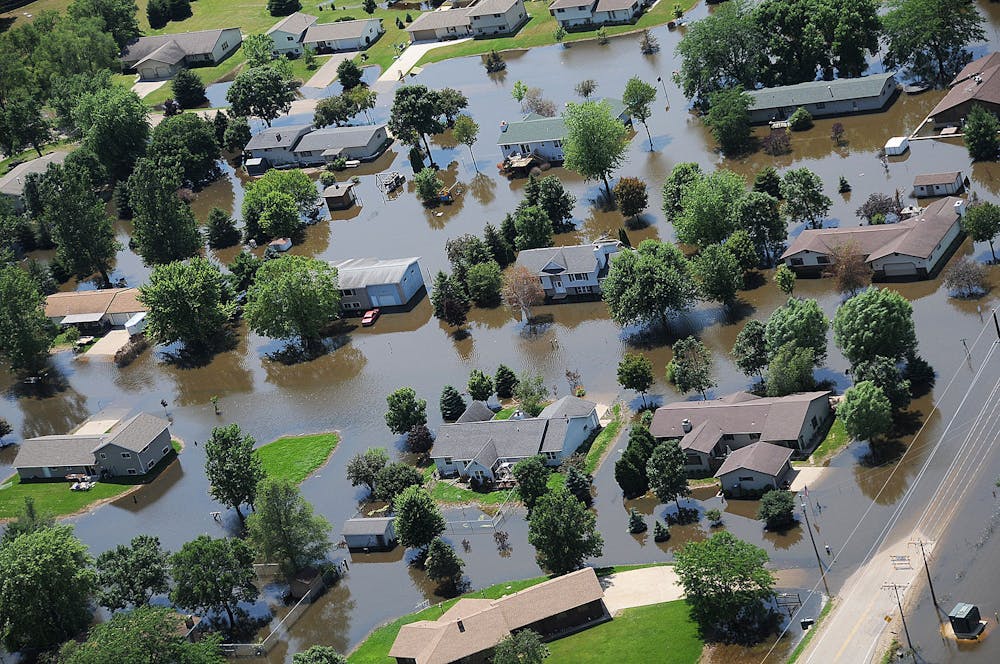By Aneri Upadhyay
Staff Writer
Climate change has led to an increase in heatwaves, hurricanes and other natural disasters, but people may be unaware of just how directly they are affected. Climate change may lead to an increase in insurance costs for homeowners if the temperature keeps rising.
The National Centers for Environmental Information’s annual Global Climate Report revealed that the average global surface temperature in Jan. 2023 was the seventh highest it has ever been since records started in 1850. The temperature has been rising for decades and it is only getting higher.
How does this affect homeowners? As reported by AP News, California, Florida and Lousisana are predicted to have the highest increase in insurance costs according to a report from First Street Foundation. This is due to these states being home to a lot of wildfires and flooding.
“If you’re not worried, you’re not paying attention,” said California Sen. Bill Dodd. California, whose district was a victim of the LNU Complex Fires in 2020.
First Street also predicts that about 39 million properties are being underpriced when taking into account the climate risk for those properties. To put that in perspective, 39 million properties is one fourth of all homes in the United States according to AP News. This means that those properties have a higher chance of a hike in insurance prices to cover the potential damage from climate conditions in those areas.
Jeremy Porter, head of climate implications at First Street and a co-author of the report, commented on the long-term effects of climate change on home insurance.
“Some places may be impacted very minimally, but other places could see massive increases in insurance premiums in the coming years,” Porter said.
This change could lead to more people turning to state-affiliated insurance plans such as California’s FAIR plan. These plans insure homes in cases where private insurance is too expensive or even when private insurance refuses to cover the home.
Many private insurance companies have also cut back on how many people they will insure in order to save money. According to NPR, companies such as Allstate and State Farm have cut down and told people that they will not renew coverage for their homes in order to avoid paying for wildfire damage.
Those aren’t the only companies who are cutting back, especially in Florida. AAA announced that it would not renew “higher exposure” home insurance policies in the state. Farmers Insurance stated that they will stop offering new insurance policies in Florida as well and will not renew thousands of preexisting ones due to the losses from hurricanes.
David Marlett, managing director of the Brantley Risk & Insurance Center at Appalachian State University, commented on the severity of the situation.
“[Higher home insurance] impacts real estate, it impacts construction, it impacts lending. It's just ingrained with everything,” he said. “Just as a human being, if you want to be able to stay where you live or where your job is or where your kids go to school, you want to be able to rebuild your house, you have to have a solvent insurance company that provides good coverage so that you can rebuild."
The solution to higher home insurance costs lie in stopping development and construction in areas of higher risks of climate damage. However, this is not likely to happen due to the millions of dollars that could be raised in property development and taxes if those homes were built.
There is still a long way to go before there will be a permanent fix to decrease the Earth’s temperature and combat climate change, but insurance companies have the chance to help homeowners out in the process. Whether they will is yet to be determined.







